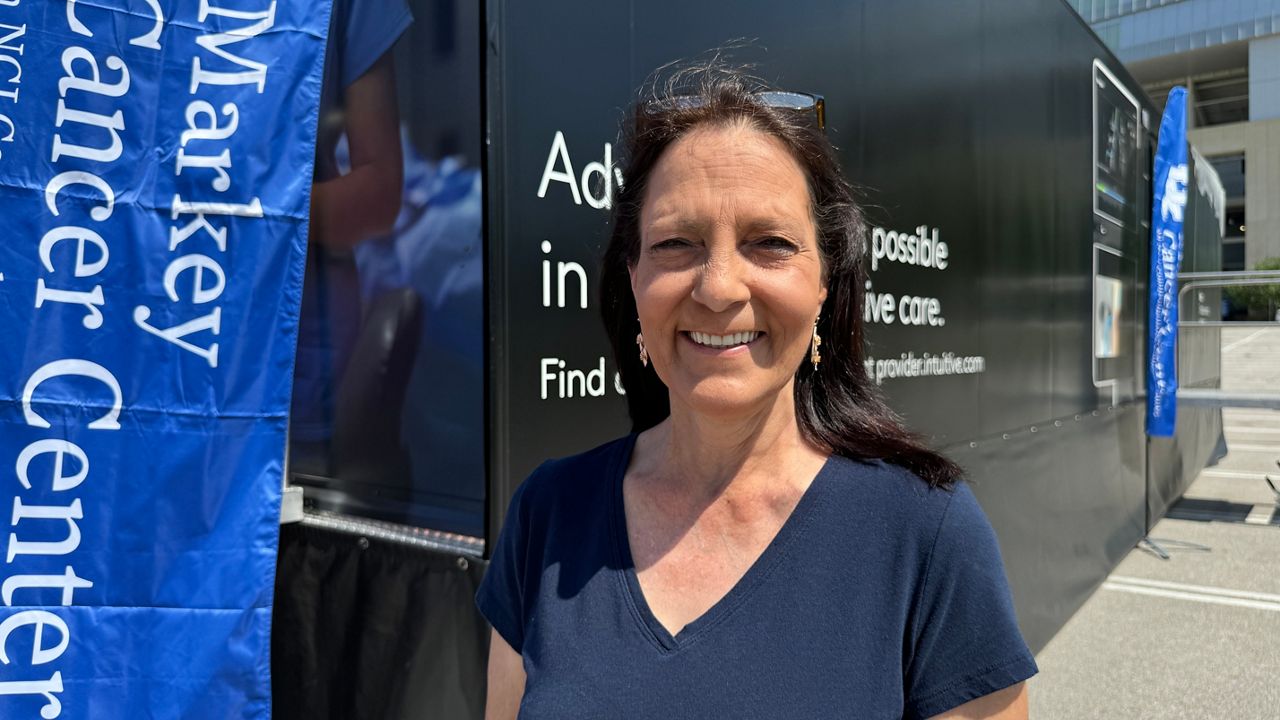LEXINGTON, Ky. — Advanced equipment at the University of Kentucky’s Markey Cancer Center is cutting back the time and long-term process of lung cancer diagnosis and treatment.
After 45 years of smoking, Lexington native Lisa Beed had one of the biggest health concerns she had ever experienced. However, Beed said that a life-changing decision and innovative solutions saved her life.
“I was a long-term smoker, and when someone suggested a lung scan, you don’t want to hear that if you’re a smoker, you go into it, and now you have other things to do. Life gets in the way, but you stand longer at the grocery store than you do to have this lung scan. And I’m here because of it,” Beed said.
Beed is now a lung cancer survivor and patient at the UK’s Markey Cancer Center. She’s one of six patients who are a part of the center’s latest advanced lung-cancer detection, diagnosis and removal program.
It’s called the ion endoluminal system, and it allows five surgical robots, controlled by physicians, to streamline what would have been months of detection and treatment processes into a single visit after a lung screening has been conducted.
Doctor Scott Yee is one of the surgeons who control the machine through a screen and a microscopic camera that biopsies the lung.
“With the combination of the rabbi bronchoscopy with the CT scan, our rates are just as equal to IR-guided CT biopsies, which is always what everyone’s shooting for. So this technology has increased the rate of diagnosis and therefore helps our patients get a diagnosis much faster, like curative therapy,” Dr. Yee said.
“It gives us a little line to follow. Turn right here. Turn left there. Now, you’re right at the tumor, so that we know we can get a good piece of it,” Yee added.
Shari Meyerson is a professor and chief of thoracic surgery at UK.
“If this were actually in a patient’s chest, we would be seeing their lungs,” Meyerson said.
Meyerson said the process is simply a game-changer.
“I think everyone has felt that getting the diagnosis and the treatment at the same time has just taken such a load off of their minds to know that once they know they have cancer, we’re doing something about it right away,” Meyerson said.
“For me, it was big because of anxiety. If you have it and you know that you have cancer, you don’t want to wait,” Beed said. “Knowing that you have to have a surgery and the what-ifs, they eliminated all of that.”
In a news release, the cancer center shares that the overall five-year survival rate is at 28% for people diagnosed with non-small cell lung cancer.
Surgeons say early detection is required in order for the process to work most effectively.
link

